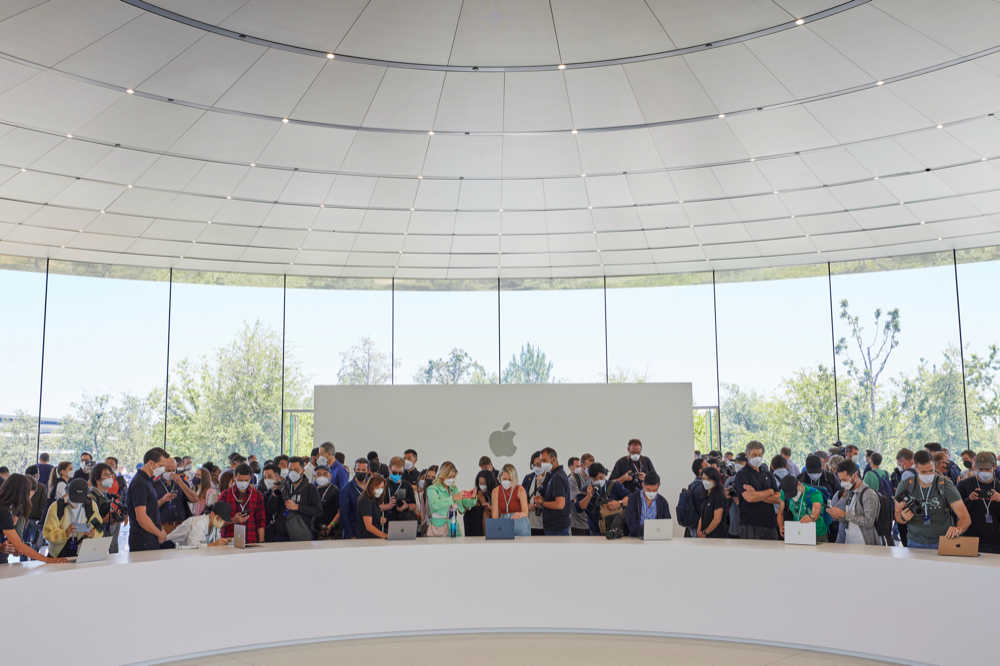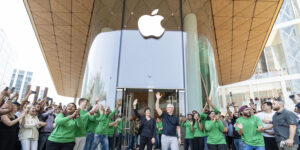Apple’s moat runs wide and deep

Hardware is Apple’s moat, and while it’s easy to forget it, those billions of Apple devices will be hard to replace on any metric, including manufacturing. That means that when it comes to personal devices Apple has water around its castle, which means it has time to get things right on AI.
Look at it this way, even if Jony Ive were to sacrifice his duty to humanity and design devices with AI firms that ignore privacy, it would still take time, money, energy, raw materials and public acceptance to get one of those things into everybody’s hands. That’s why most AI companies are focusing on services, rather than hardware, to reach market.
Apple’s moat runs wide and deep
Apple also makes services, including search services, and while regulators will eventually force it to compete with other services on its own platforms, its iconic reputation mean millions will still use its services in preference to those from other providers. The customer satisfaction it has crafted across the years means something, even as the industry itself encounters change. In the short term, of course, profiting from that opportunity means making sure Siri is smarter, more accurate, and far more reliable than it has become. Even if Siri is just one of multiple AI assistants available to you on your Apple device, so long as it competes millions will continue to use it.
Which isn’t to say it doesn’t need improvement
But Siri needs to go further than that, and the mass investments Apple is making in building chips for use in the Siri server farms show the company intends to reach further. It’s a search “assistant”, after all, so it makes sense for Siri to become an AI agent, rather than a posh Google replacement. It makes sense to make it possible to ask Siri to monitor something and report back.
That could include Siri keeping an eye on your Mac for symptoms of possible faults, automated bookkeeping, or real time threat detection, for example. It will definitely mean smart power management, as that’s a feature we got told to expect in iOS 19.
We think we know that these ‘agentic’ use cases Apple is cooking up for healthcare. Dubbed “Project Mulberry”, we hope to learn more about these new health tools, which put a doctor on your wrist, at WWDC. Existing speculation is that your Apple devices will get much smarter at understanding the health data they collect and may be able to spot symptoms as they emerge, sometimes before you spot them yourself. That’s going to be a service-focused extension to the moat, one that builds on the platform deployment Apple has already achieved.
Join the dots and think it through
But when you add it all up – Apple’s existing distribution, its ability to craft new service and product opportunities from within that, the company has plenty of ballast to ensure it retains consumer legitimacy, and when it comes to AI deployment and the future of search, that’s what’s going to make it possible for the company to build and maintain its business. Sure, it may not be able to keep all the revenue from all the enterprises that run on its platforms, it will have to open up to competitors, but it will retain the moat.
That ability means the company will be able to surf through the current anxiety around search and AI until it reaches one, more likely both, of the following positions:
It may offer Apple Intelligence as an option alongside Gemini, ChatGPT, and others.
It may offer Apple Intelligence search as an option.
If competing services “win” in terms of usage on its devices, Apple will picot to offer services its competitors don’t provide (such as health).
Finally, Apple is in position to reinvent search.
That’s almost certainly going to mean it will build its own Agentic AI for Siri. You might recite a shopping list to Siri for it to order your groceries for you, or give it a raft of documents and spreadsheets and ask it to mine that data for specific answers, or to create overall reports. Siri could make use of multiple services to achieve this, particilalry as they will all work on the Apple device.
Bottom line?
Apple’s moat runs deep. Yes, it faces challenges, and yes the quarterly revenue of its business may shrink for a little while, but its tangible value remains strong, and the software services it is building now will also inform the future product introductions it makes. Robotics, health, and home devices loom just over the horizon, and Apple’s moat remains sufficiently deep for the company to make it there.
You can follow me on social media! Join me on BlueSky, LinkedIn, and Mastodon.




